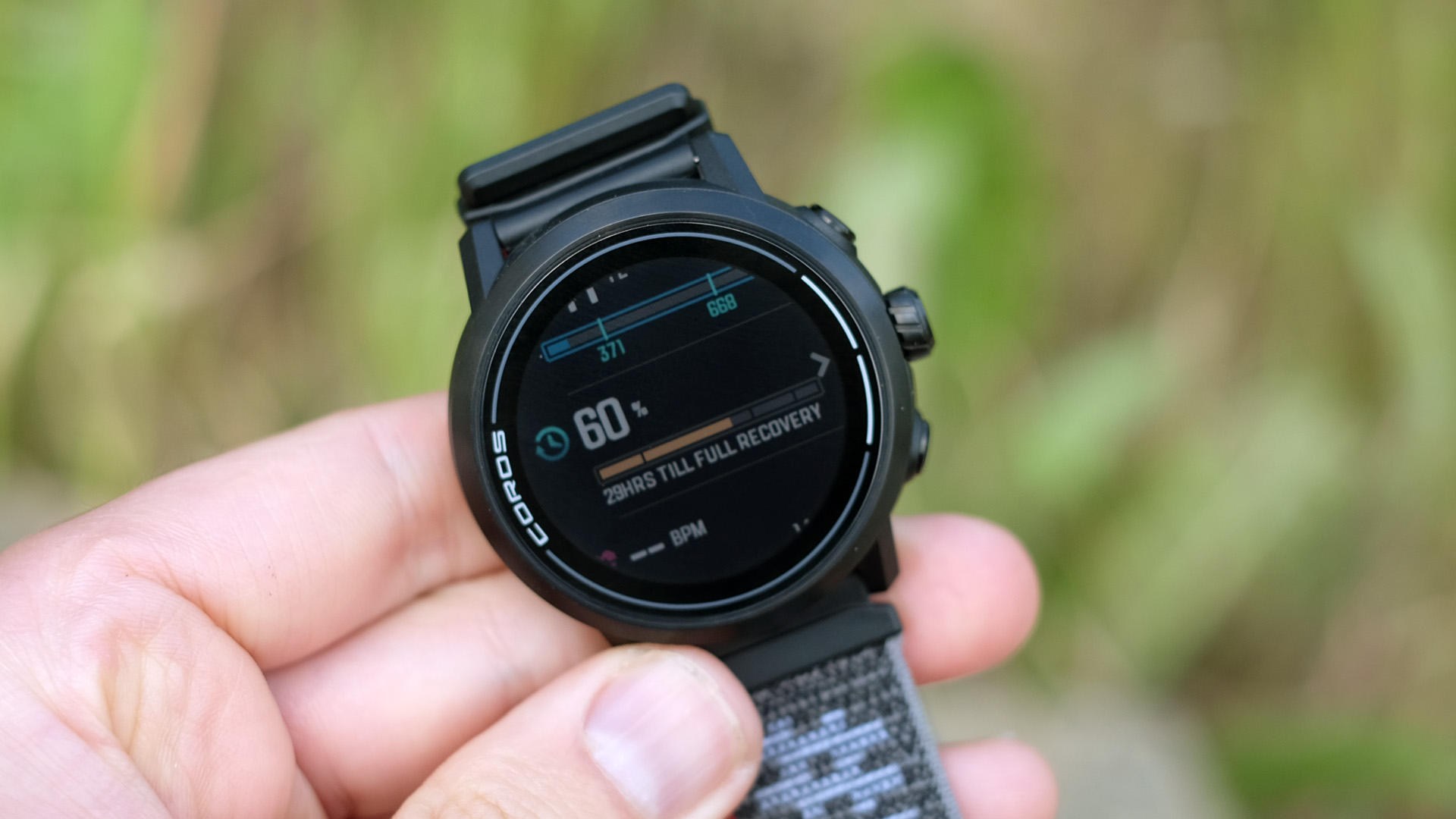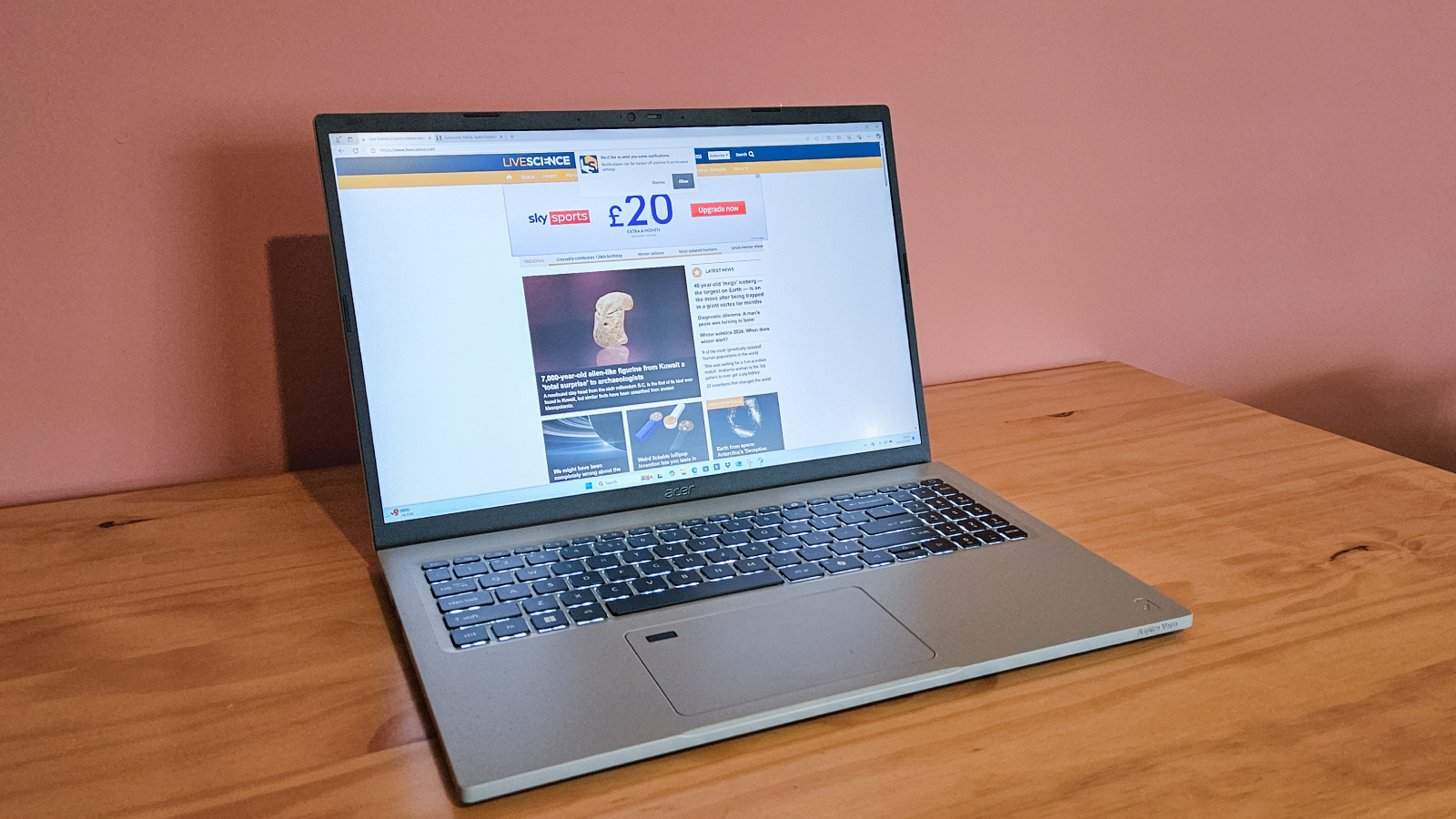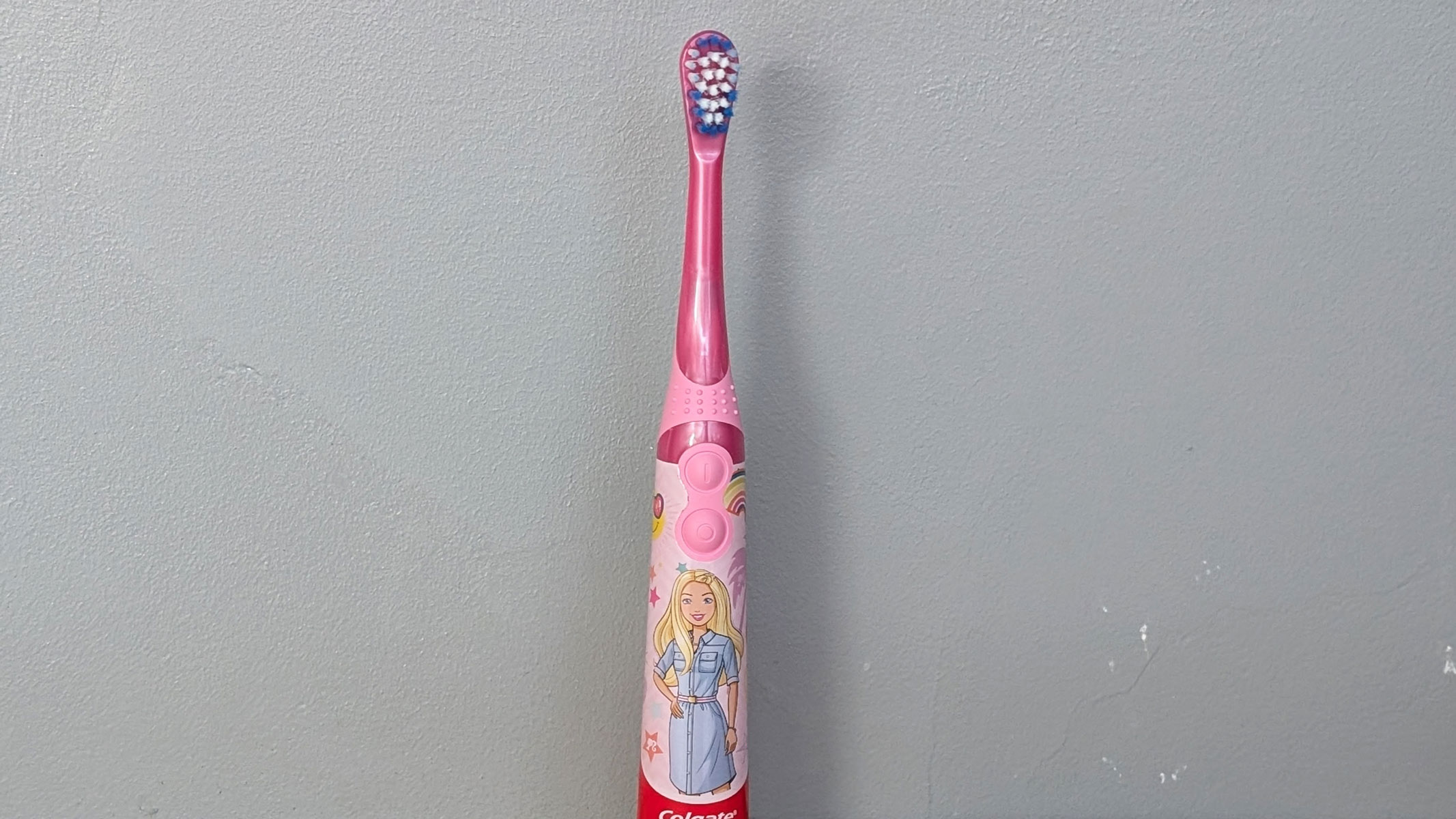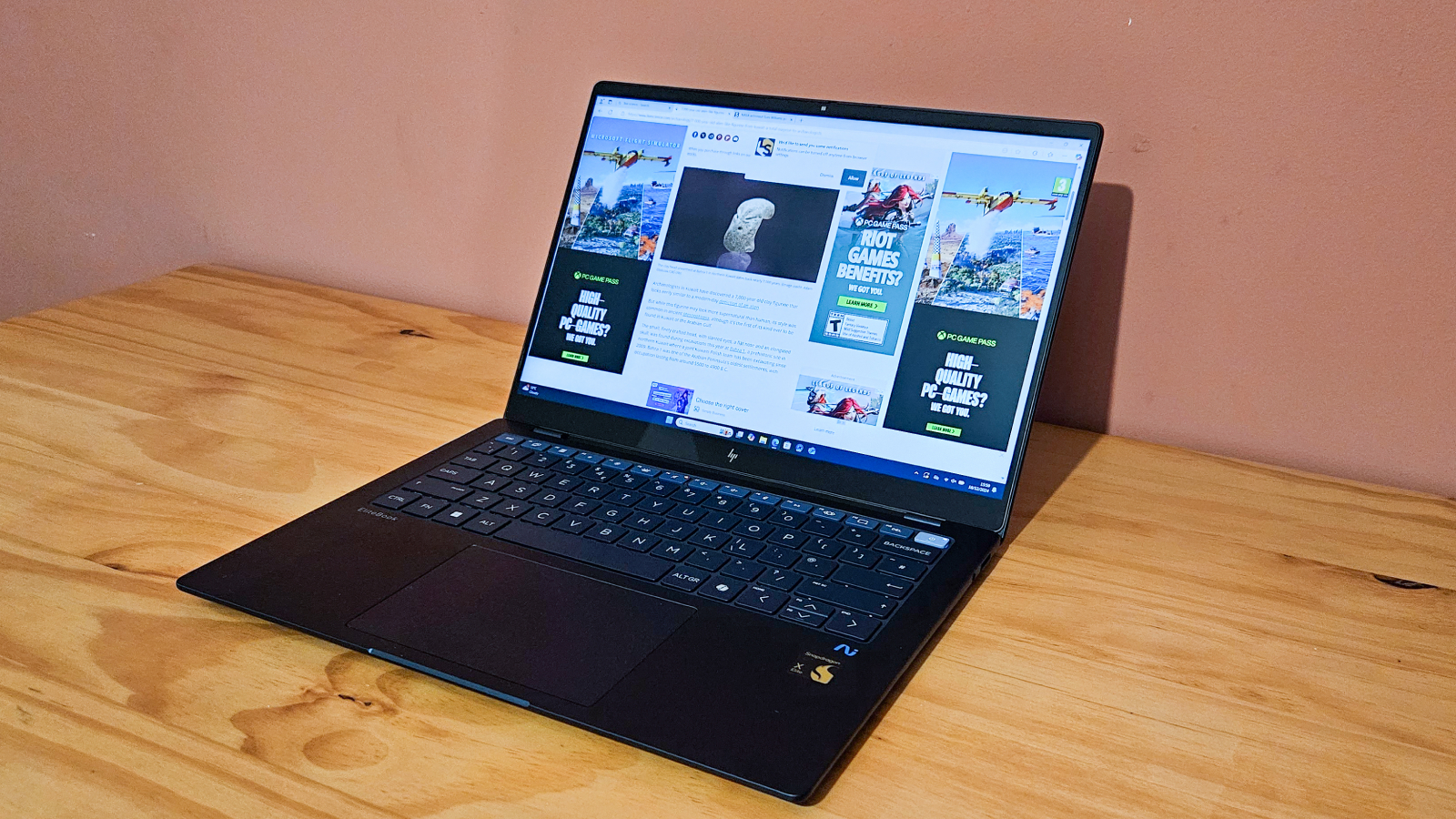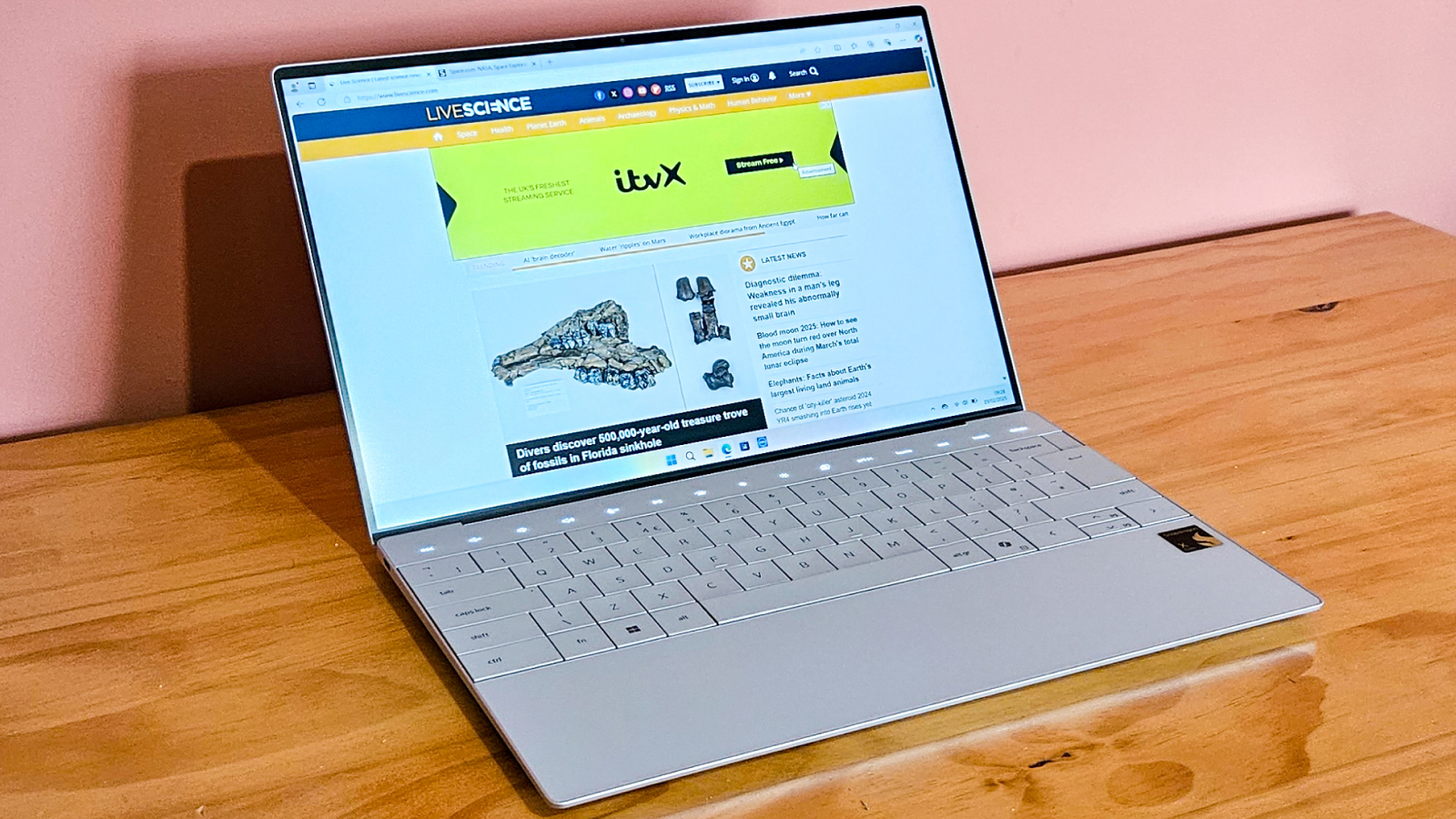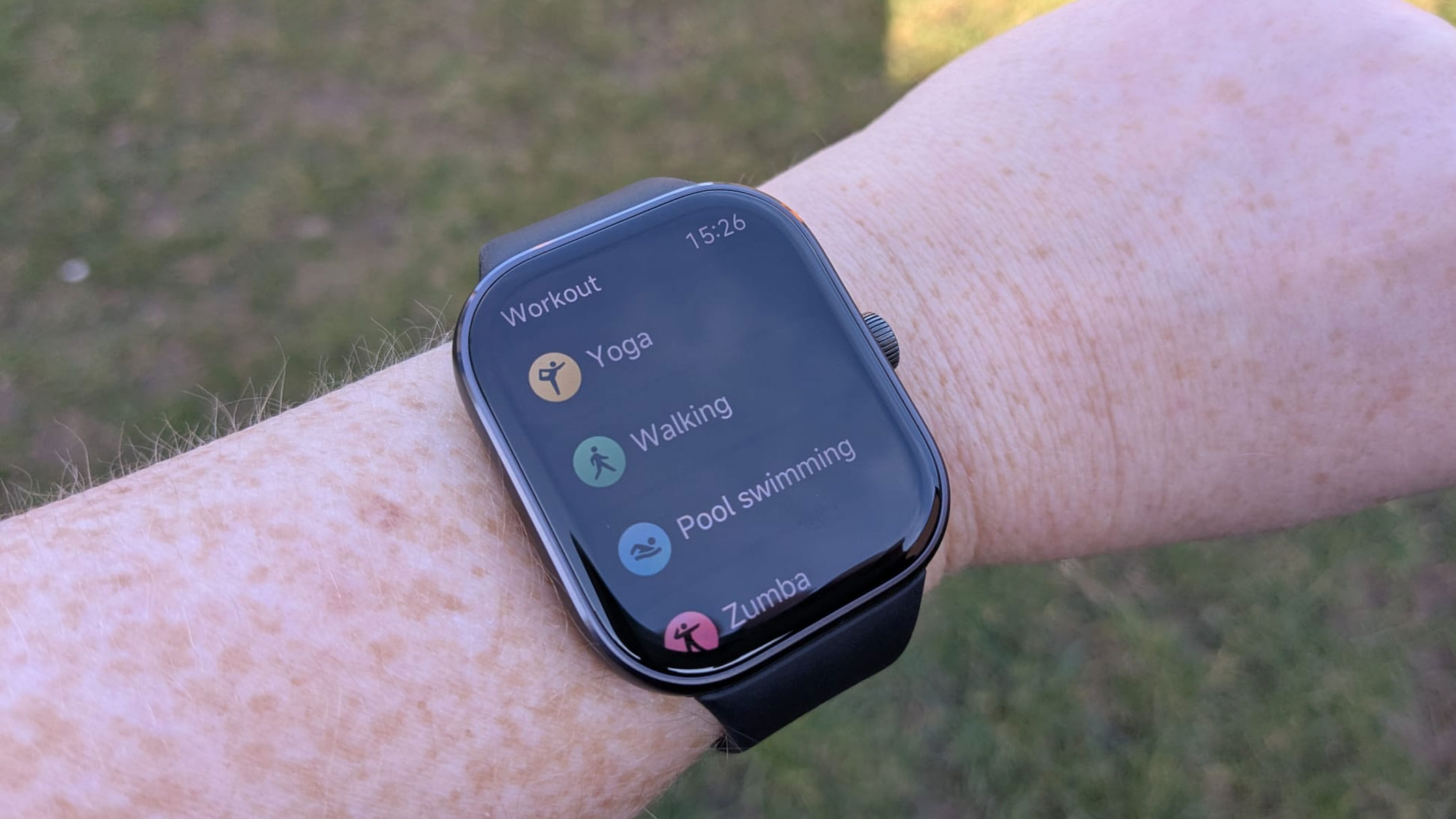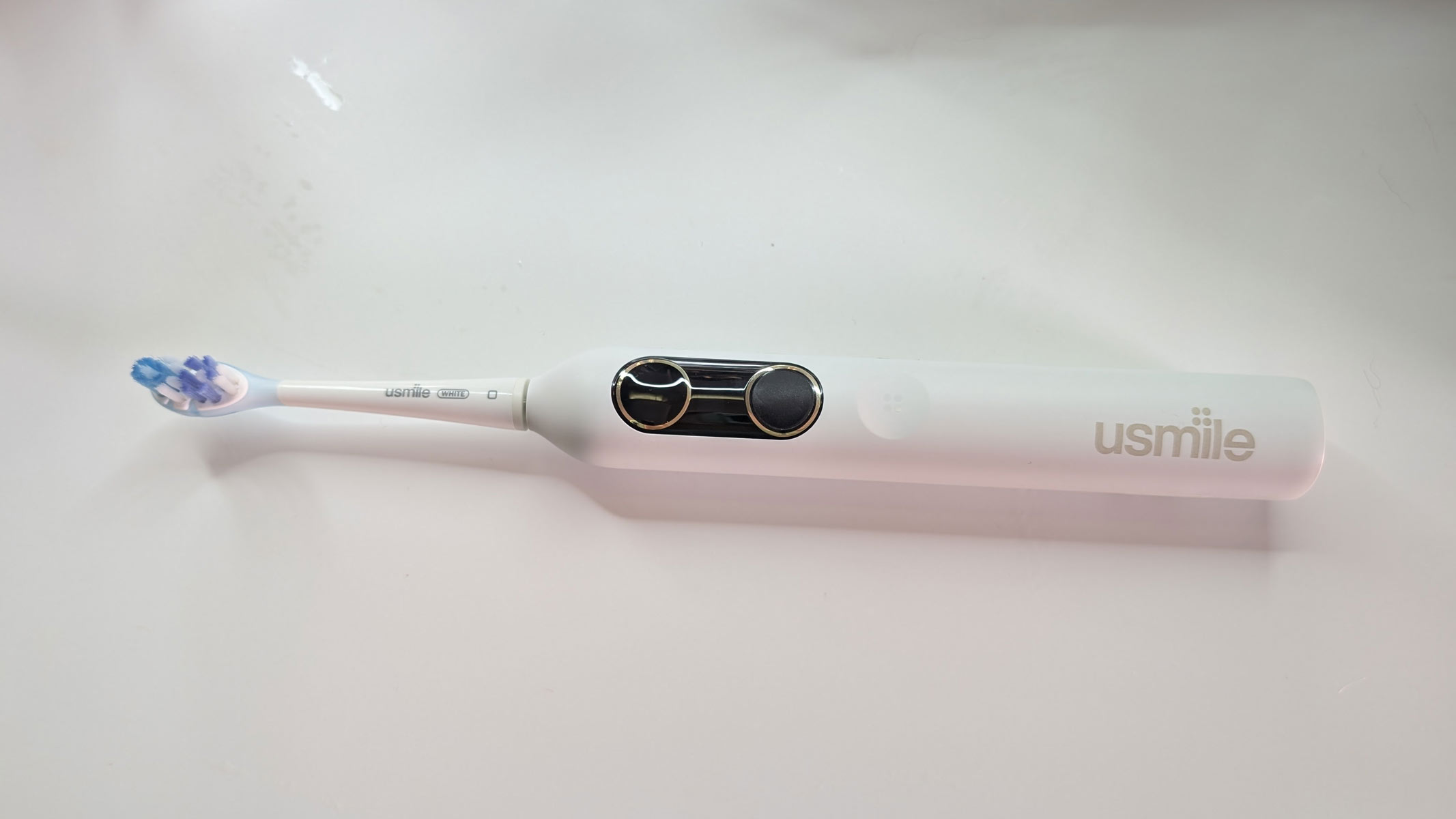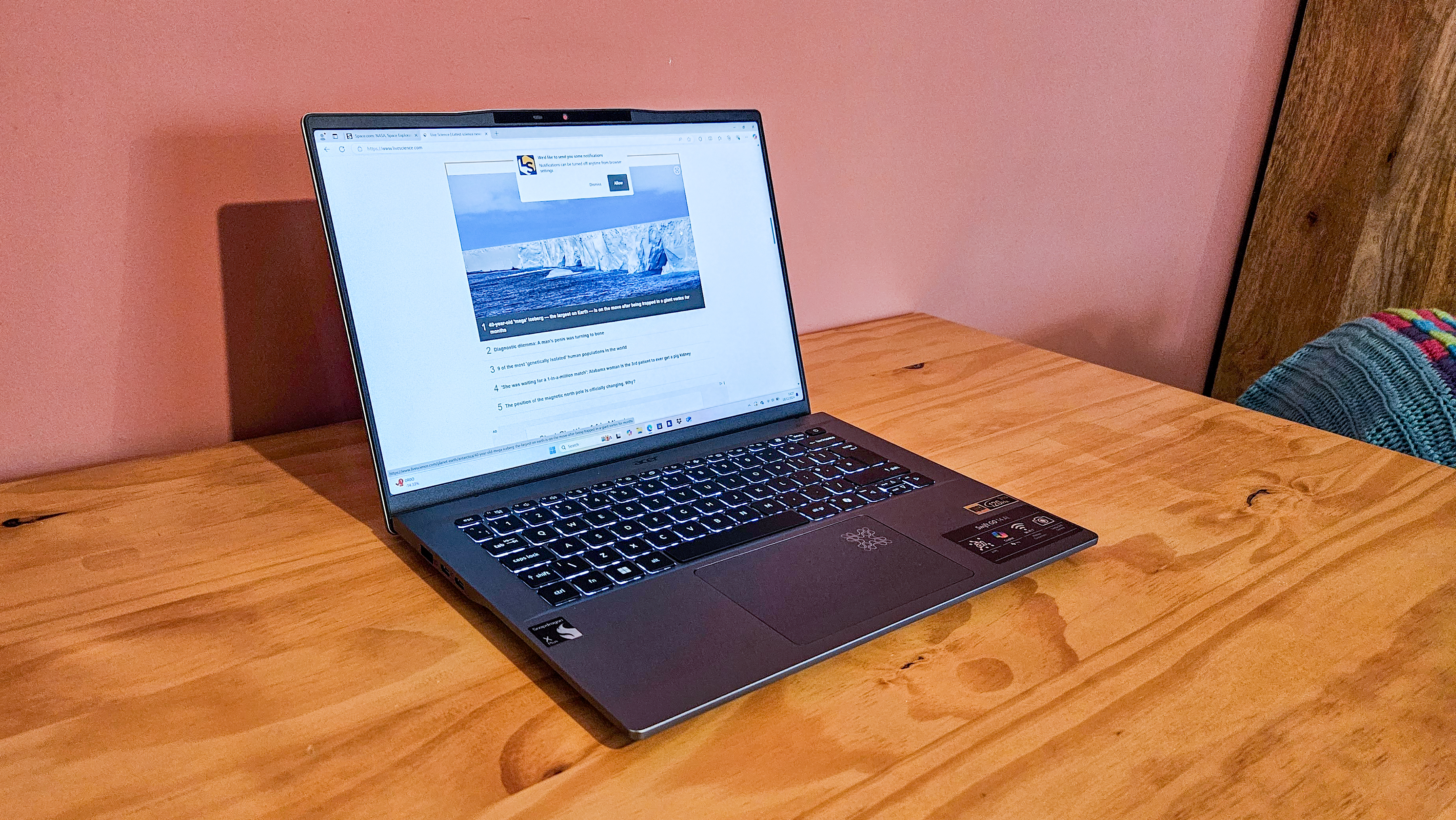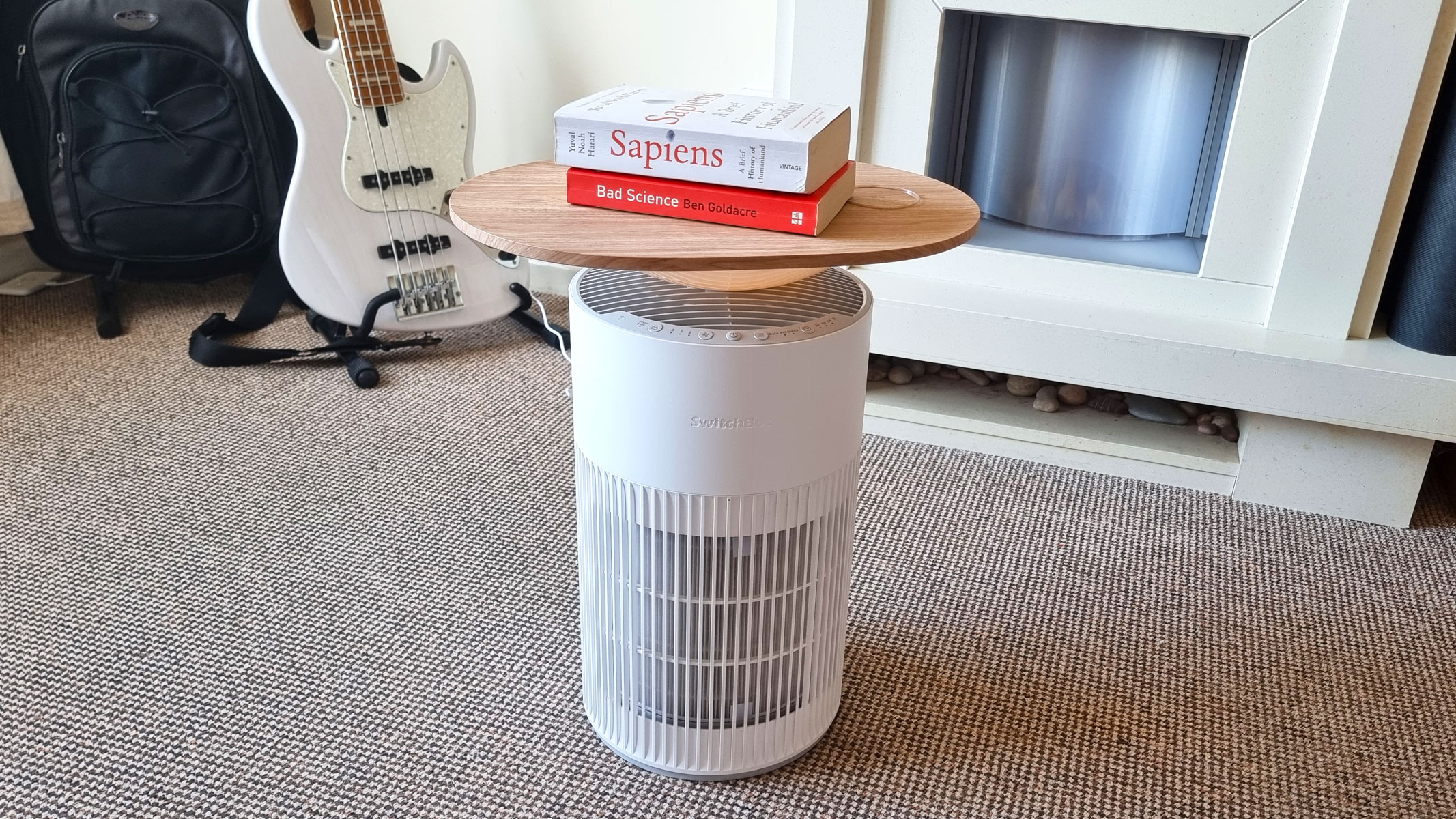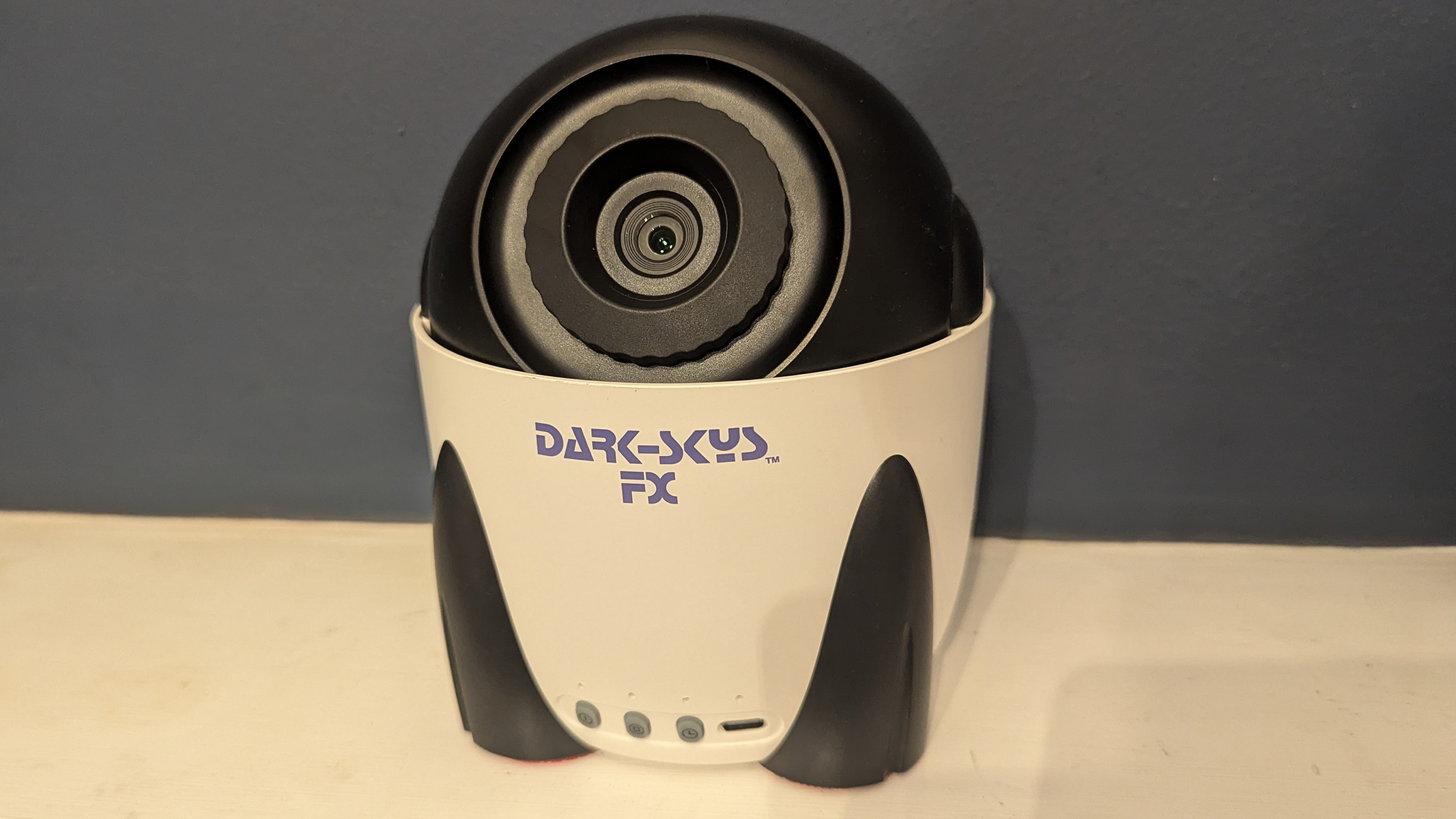Live Science Verdict
The Coros Apex 2 has some high-end design elements and mapping features other brands struggle to match. It could do with a little more fluidity in its interface, but this watch has real fitness tracking credit.
Pros
- +
On-watch maps at an appealing price
- +
Comfortable
- +
Excellent rugged credibility
Cons
- -
No music streaming service support
- -
Interface navigation is relatively slow and stilted
- -
Some minor HR accuracy issues
Why you can trust Live Science
The Coros Apex 2 is an activity and fitness watch for folks who want to get a real grip on their exercise routine.
We could say it's for athletes, but this is a much more approachable watch than just that. Its battery lasts for ages, it’s smaller than most high-end fitness watches and provides more than what the best Garmin watches offer for similar money.
Up to 17-day battery life
1.2in 240 x 240 Memory LCD touchscreen
43.0 x 42.8 x 12.8mm
5ATM water resistance
8GB storage
42g (52g with silicone band)
Sapphire display glass
Titanium bezel
It’s tougher, and has legit on-watch mapping, including full navigation of routes and courses you work out beforehand. This earned it a place in our guide to the best fitness trackers.
The Coros Apex 2’s problem is it isn’t quite as fun to use as it could be, with stilted navigation that lets down what is a fairly good-looking interface.
Coros Apex 2: Price and availability
Coros launched the Apex 2 in November 2022 for $399/£419, alongside the Apex 2 Pro at $499/£499. The Pro is slightly larger, has a longer-lasting battery and Multi-Band GPS, which provides more reliable GPS tracking in tough environments. Run in the local park? You probably don’t need it.
Since launch, these watches have become more appealing with a price drop to $349/£349 and a software update that adds significant features including much improved on-watch map support. More on that later.
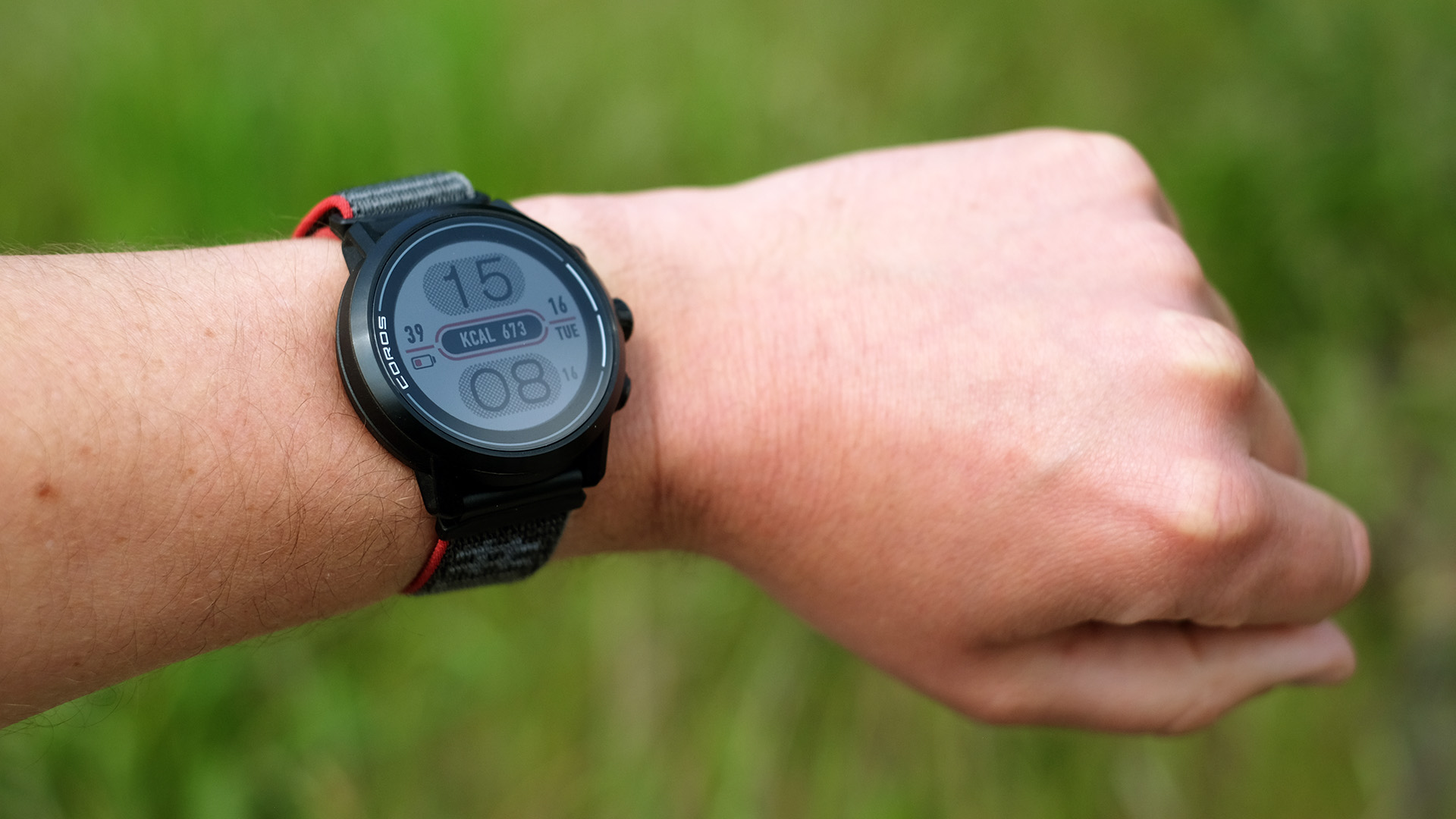
Coros Apex 2: Design and Display
It must be tricky for Coros to get much attention when it has to compete with companies like Apple and Garmin. But it is certainly trying.
The Coros Apex 2 design is notable in at least a couple of important ways. First, there’s the strap. The watch includes a nylon weave strap, the kind you might usually have to buy as an aftermarket accessory.
It’s super-comfy and secure, and makes it easier to get a solid fit than a silicone strap. Will it fare as well over time? Maybe not, but we’ve used the Apex 2 for a couple of months all-in, and it still looks new.
The Coros Apex 2 watch body itself is also impressive, with much higher-end materials than those of the comparable Garmin Forerunner 255 Music. That watch has a plastic body and a Gorilla Glass 3 screen — fine, but nothing special. This watch has a titanium bezel and backplate, and Sapphire display protection. It’s closer to the stuff used in Garmin’s most expensive watches.
The sidewalls of the Apex 2 are plastic, but this is sensible as it lowers weight. This watch weighs 42g with the nylon strap, and has a 43mm watch face. We like this size of watch, but there’s also the Apex 2 Pro. It’s very similar but has a larger 46mm diameter and a slightly 1.3in larger screen.
You get a 1.2-inch screen in the standard Coros Apex. It’s a classic transflective screen, meaning it gets clearer in direct sunlight but needs a classic digital watch-style front light to be visible in the dark.
We find its clarity to be excellent during the day. There are only five Apex 2 watch faces preinstalled, but using the Coros app you can replace those five slots with, by our count, just over 100 others. Lots of them look great, and they are all free. Wonderful.
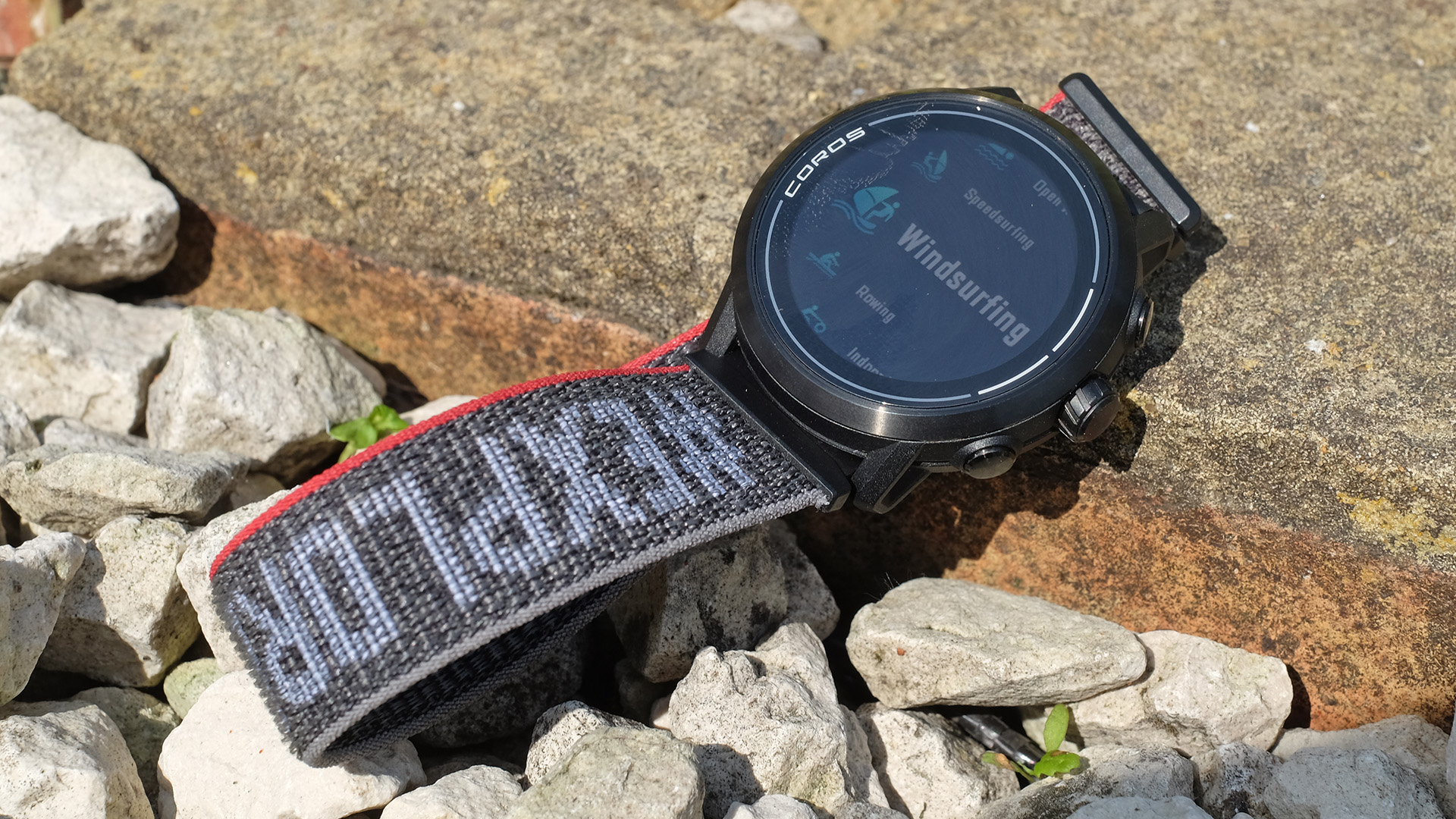
Coros Apex 2: Features
How the watch looks, inside and out, is usually spot on. How the Apex 2 feels could do with a little more work in places.
Here’s how it works. The Coros Apex 2 has a lovely free-turning crown on its side. You can use this to flick through menus, or the touchscreen.
Touch and rotating crown? These are two of the best controllers for watches, but the interface offers no way to actually move through menus fast, as you might on a Samsung Galaxy Watch 4, Apple Watch or Garmin Fenix 7.
The way the system moves in little discrete notches holds you back, and we find it stops us from looking at one of the main interface areas at all often, because there’s too much friction. When you flick up from the watch face you’ll see a screen near-identical to Garmin’s glances. These show you daily bits of data like your step count, floors climbed, recovery status and so on.
Similarly, moving through the exercise screen often feels like it takes too long. It’s not that the Apex 2 seems laggy or not powerful enough: this is how the watch is designed. It’s just a bit laboured.
Still, if you have used a recent-era Garmin and are considering switching, you will find the Apex 2 interface pretty familiar as the layout is comparable.
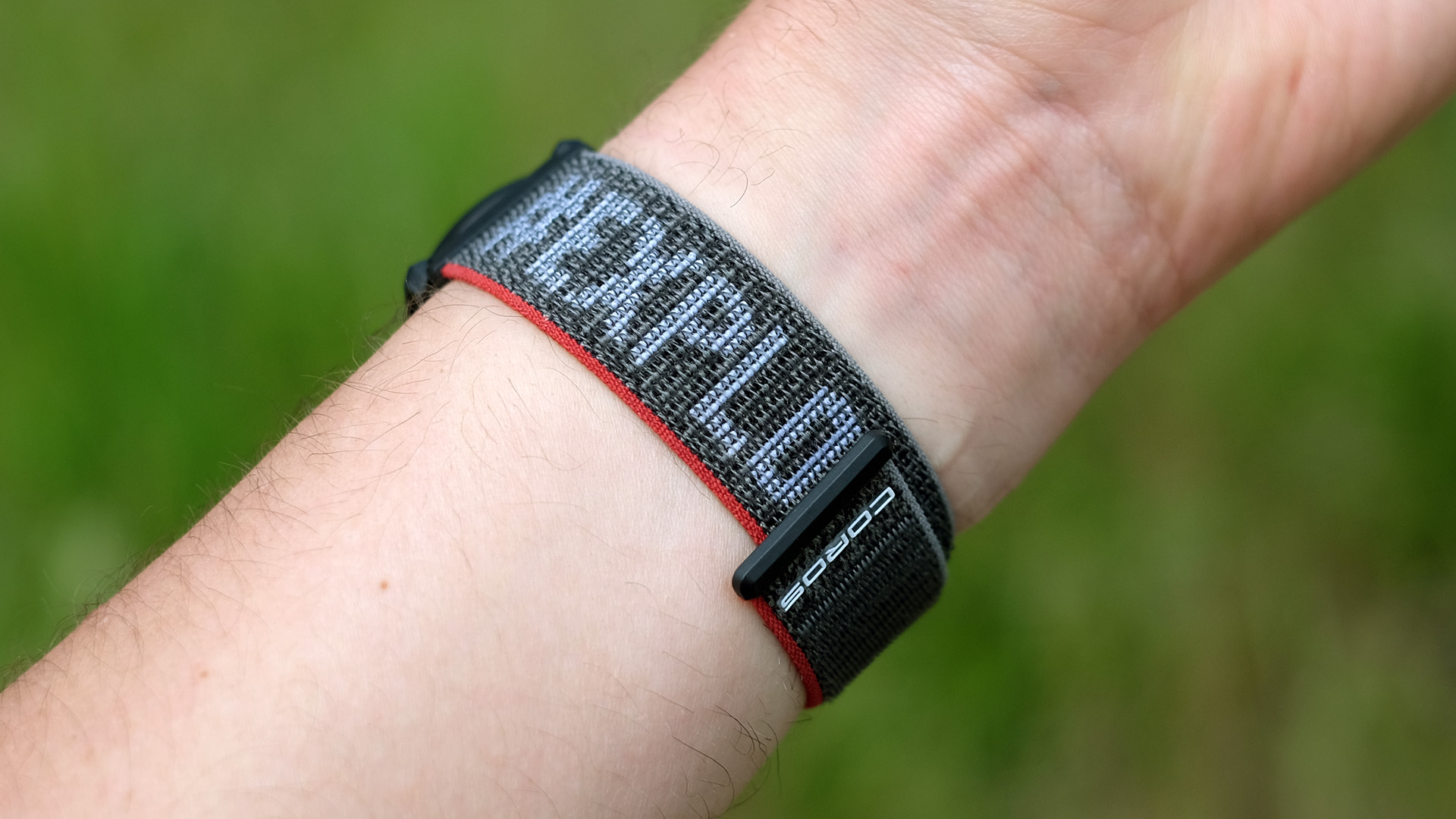
You also get the full array of internal fitness hardware. The Apex 2 has full GPS, of course, a heart rate sensor, temperature sensor and barometric altimeter. That last one can be used to count the number of flights of stairs you climb each day, or and to estimate altitude and the grade of slopes (GPS data can provide this too).
The heart rate hardware can measure blood oxygenation, although it’s kind of hidden on the watch, and it can receive notifications from your phone. These seem to pop through near-instantly, making them useful even if you can’t reply to messages on the watch itself.
There’s even music support, with playback right from your wrist. However, with only 8GB storage, not all of which is available to use, the 32GB Apex 2 Pro is the better bet for music. There’s also no support for any streaming services, meaning you need the digital music files many of us have moved away from.
This storage is also used for what might be the Apex 2’s stand-out feature, on-watch maps. When the watch first launched, getting maps onto the Apex was a real pain. But a May 2023 update improved matters significantly.
You can’t download extra areas on the watch itself, but you can now select blocks of the map in the Coros phone app. All of the UK (where we tested), bar the top bits of Scotland, fits into five of these blocks, and only take up a couple of hundred megabytes and change.
These maps provide roads, paths, and topographic data. And they become the basis for the routes you’ll generate in the Coros app, and fling over to the watch over Bluetooth.
The routes are then used in the Apex 2’s Navigation mode, which can be accessed though loads of different tracked activities. Plan a hike and you can see the map in the hiking mode, for example. This watch is one of the most affordable ways to get this full-on navigation experience, the closest Garmin with such skills being the pricier Forerunner 955.
However, despite huge improvements to Coros' software in 2023, Garmin’s is still much better. You can control your map library right on the watch, generate routes right on the watch. And the map data includes local businesses and the like.
If you want to plan a hike right on your watch, buy a Garmin. Guided workouts are a similar case. There’s capability here for workout plans, but Garmin’s implementation is just so much smoother and more refined. It makes you appreciate the huge amount of money and time Garmin must have invested into software development over the years.
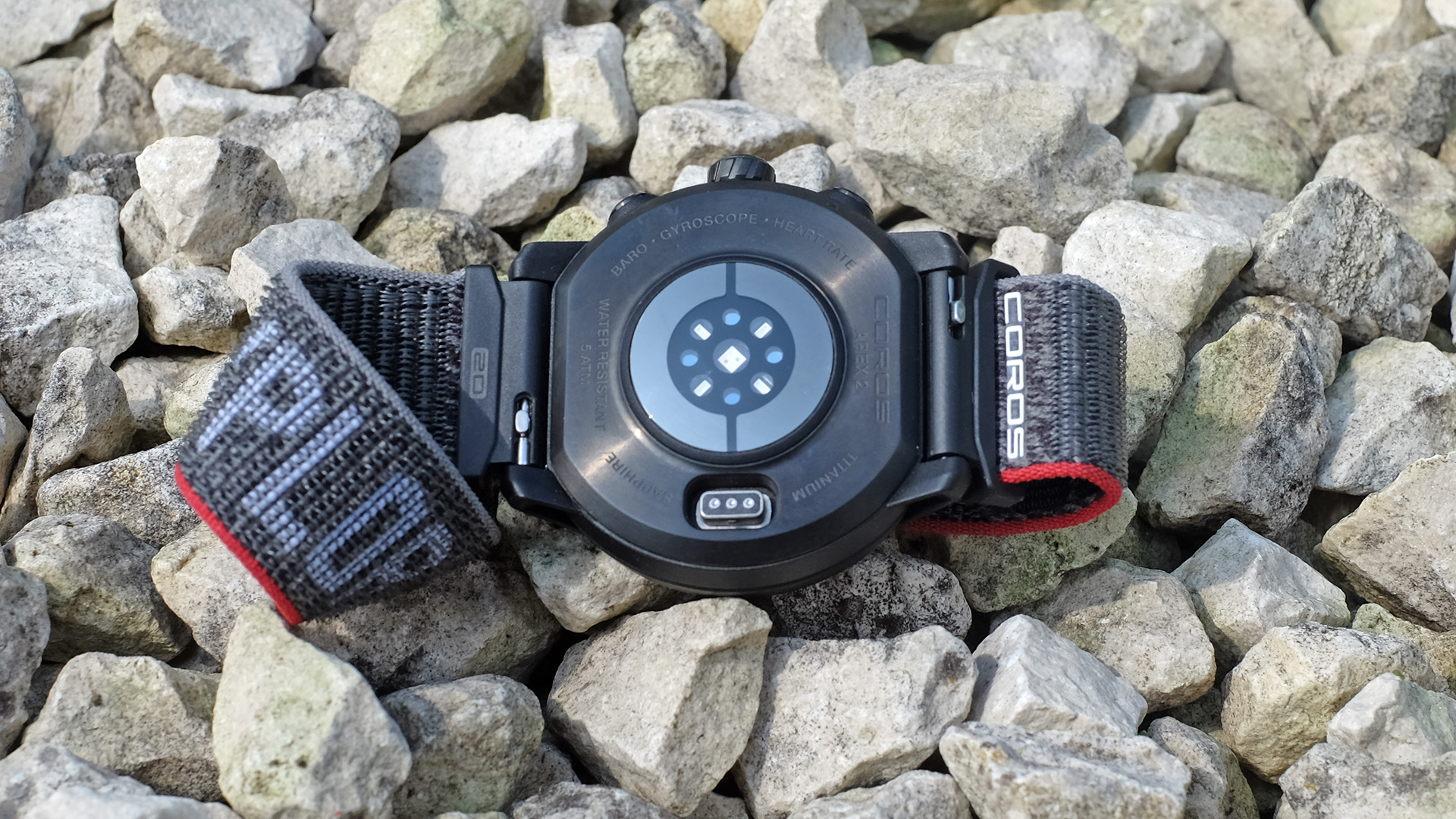
Still, an Apex 2 does all we need it to, much of the time. We get stacks of exercise modes, including lots with more thoughtful and meaningful data fields. The track run mode counts your laps, for example, and the rowing app your stroke rate.
There are also training load and training readiness stats, that have become tent poles of high-end running watch metrics. These tell you the sort-of overall current exertion “mass" of your training routine, and how ready your body likely is to get back on it.
The final surprise is the Apex 2 has the hardware required for ECG readings, typically used to looks for signs of arrhythmia, which can be a sign of seriously underlying issues. However, right now (in the UK at least) we can’t use it. This kind of feature typically needs to be passed through a health authority, because of the seriousness of what it purports to do.
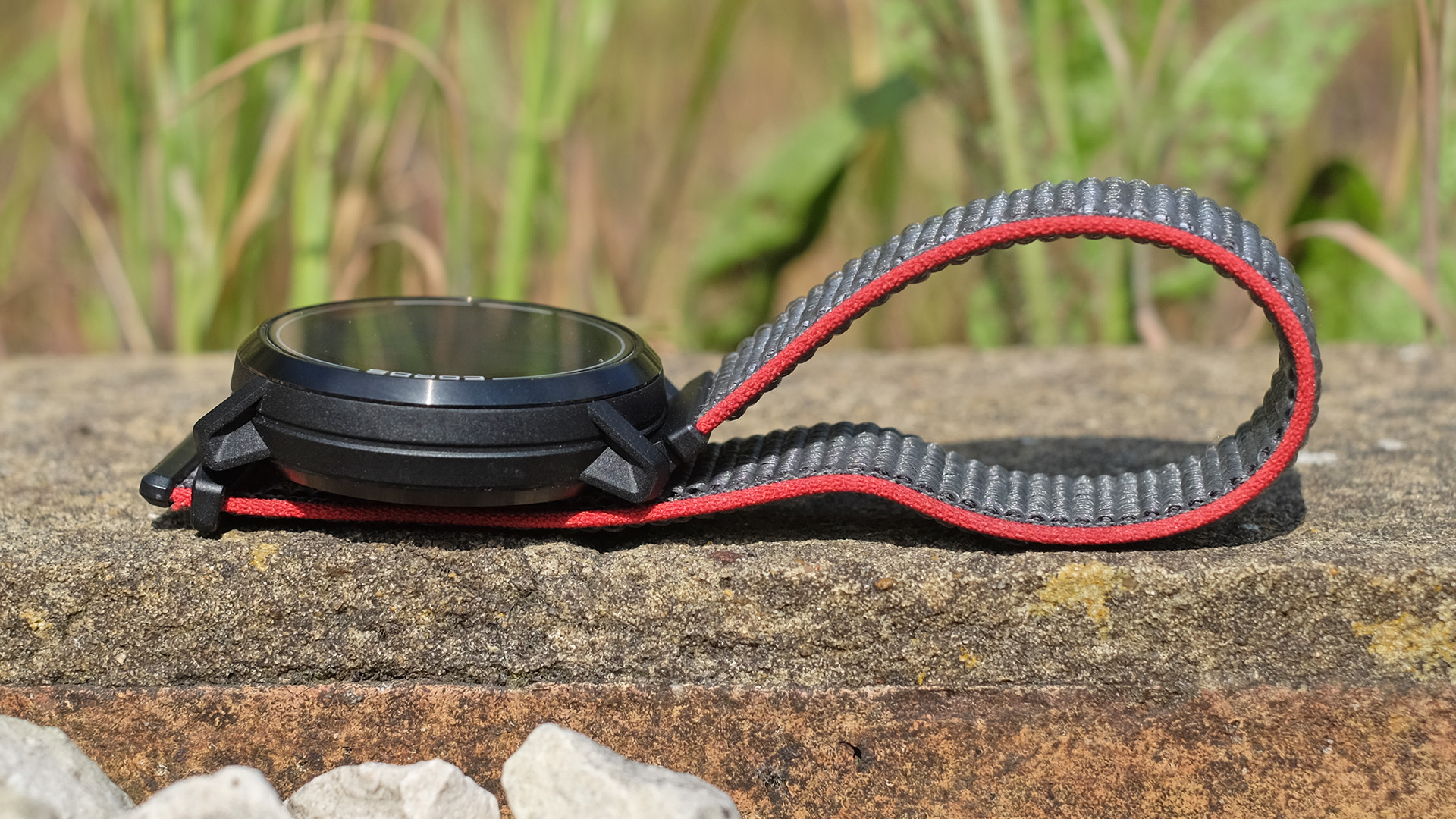
Coros Apex 2: Performance
Like most enthusiast watches with transflective screens, the Apex 2 can last ages between each charge. After our tracked runs the watch has typically only lost 2-3% charge, and real-world battery life of a full two weeks is eminently do-able.
Coros rates its battery life at 17 days. And because there’s no OLED or LCD screen here to start sucking juice at a much higher rate, GPS is going to be the biggest drain. Well, that and software updates.
Care about accuracy? We find the Coros Apex 2 tends to consistently report slightly shorter distances than recently tested devices like the Forerunner 965, Fenix 7 and Amazfit Bip 3 Pro. We’re talking about perhaps 230m over a 9km distance, a disparity of around 2.5%. It’s not a dramatic difference, but we did notice it.
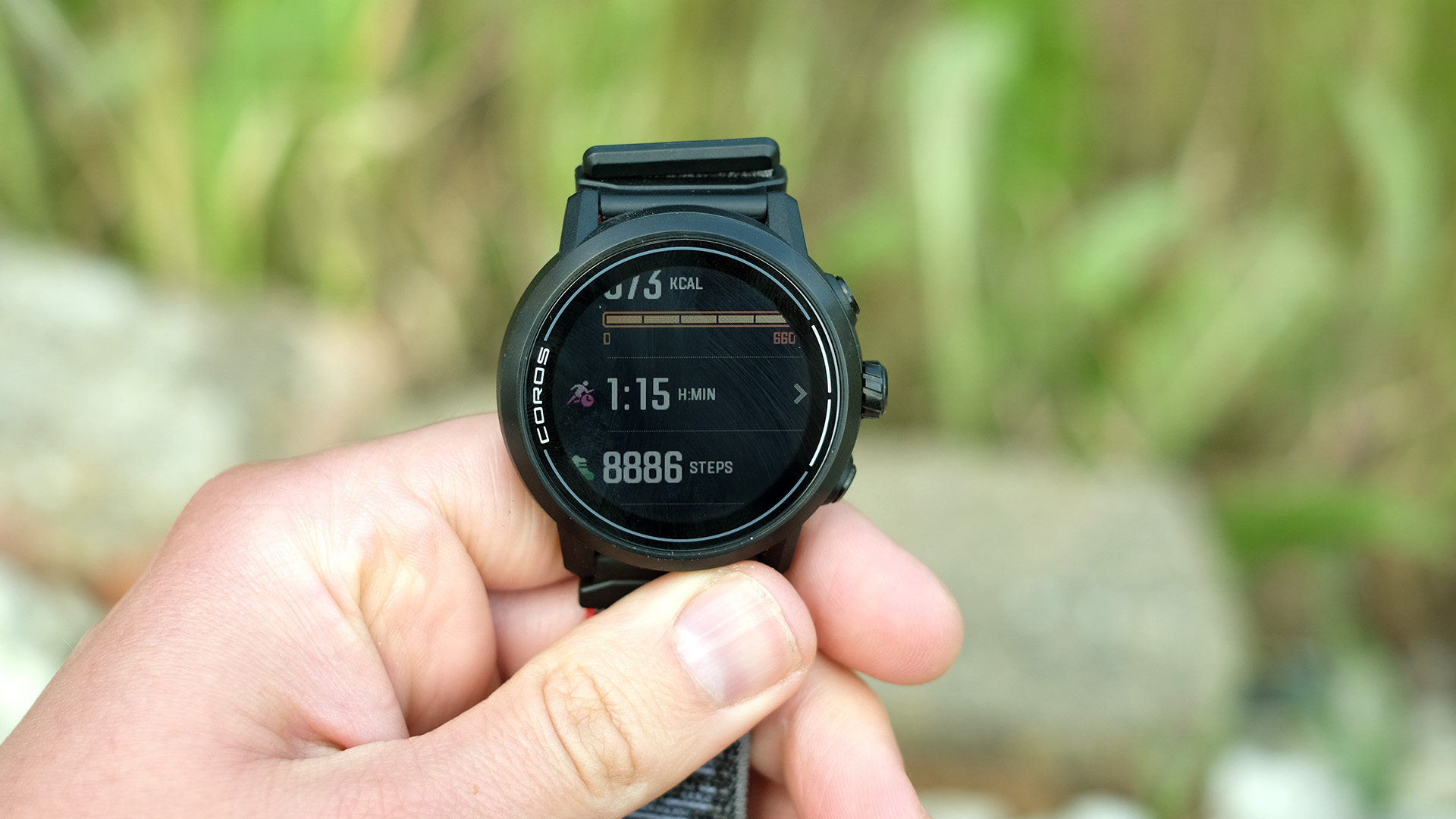
Looking right down into the maps the watch produces, it may be down to Coros applying more route smoothing than Garmin between the actual recorded location nodes. There are otherwise not obvious foul-ups.
The Coros Apex 2 heart rate data is mostly solid too, at least during exercise. We’ve had a few different issues with the Apex 2, using it for five months on and off, but it does seems pretty good during run workouts.
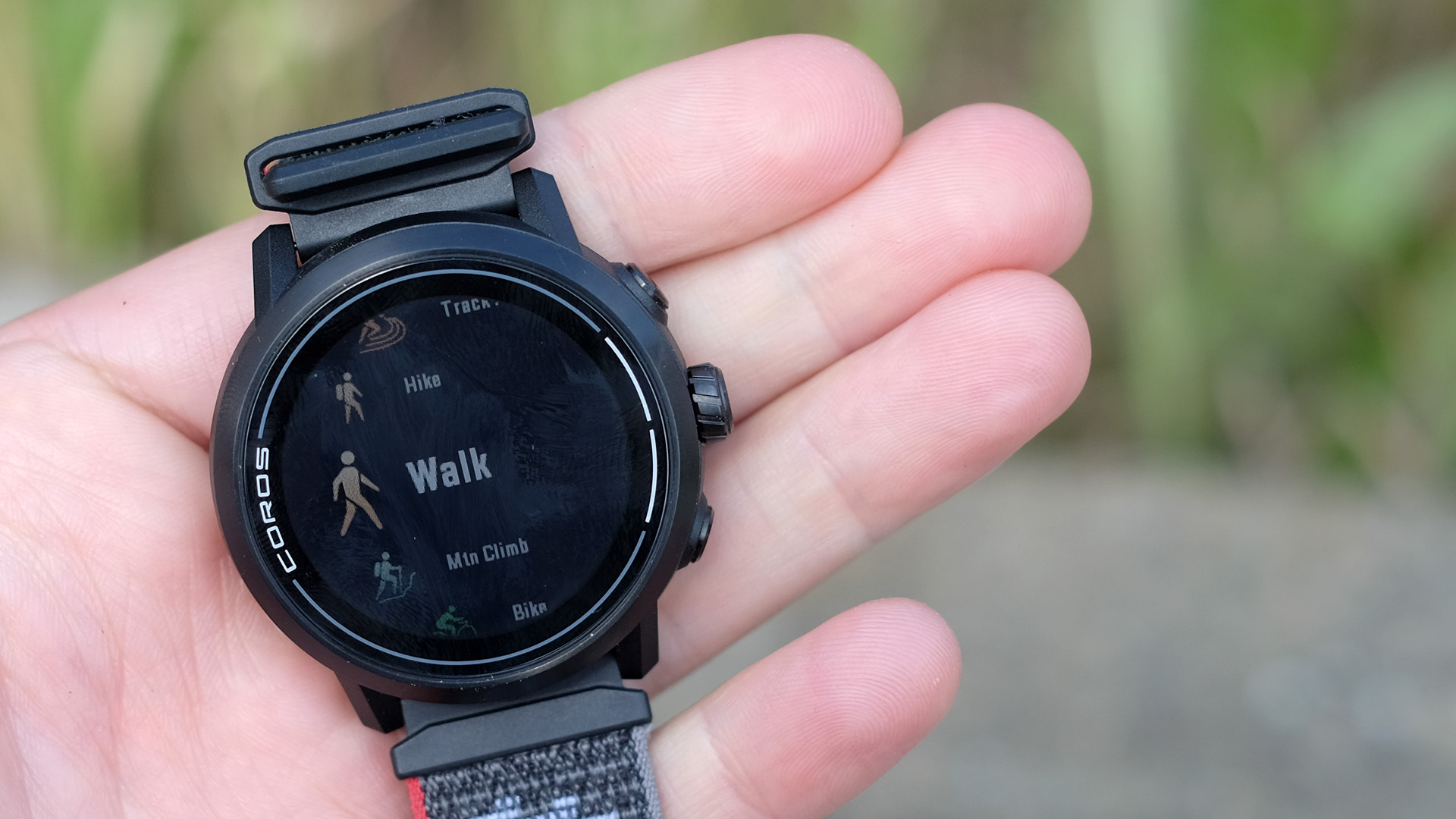
There were no obvious mixed exertion spiked with the latest firmware, and while the results were a little patchy in the first five minutes, we’re not talking about the sort of irregularity of a basic HR array. We think you can largely trust this watch to monitor your workouts.
During the day, though? Things can get a bit odd. It can over-react to your movements. Getting off a tube train or going to make a coffee has caused the Coros Apex 2 to, at times, double our actual heart rate, recording a figure of, say, 160-odd when the actual reading was 80-something.
The Apex 2 isn’t making stuff up here, it just gets the wrong idea at times. This would have more of an impact on the watch’s workings if it recorded stress levels. But it doesn’t. It could potentially impact the watch’s estimate of how recovered you are, but it seems to have worked OK for us.
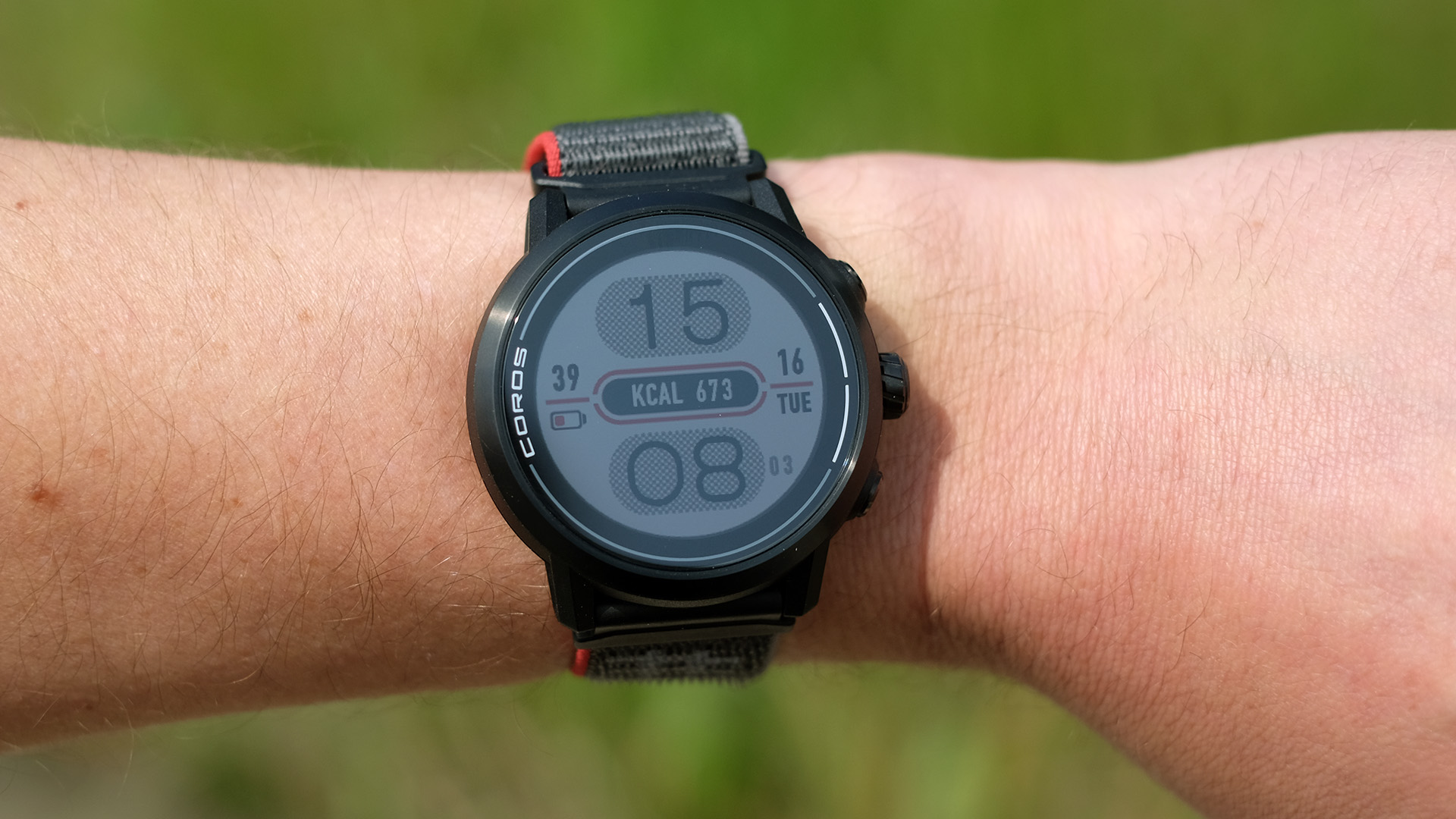
Should I buy the Coros Apex 2?
The Coros Apex 2 is one of the most affordable ways to get a dedicated fitness watch with true on-watch mapping that does not need any kind of internet connection to work. It’s ideal for hikers and adventuring types, even if you only plan to use watch maps as a backup.
Garmin’s mapping features are richer still, but the price of entry is higher for those. And the Coros Apex 2 beats such models with its use of high-end materials like Titanium and Sapphire.
Stat accuracy is a little lower than the best from Garmin or Apple in our view, although this mostly seems to affect all-day readings. We do think Coros’ software should let you glide around its menus more quickly, though, as the current stilted navigation stops you wanting to look at your stats as often as you might.
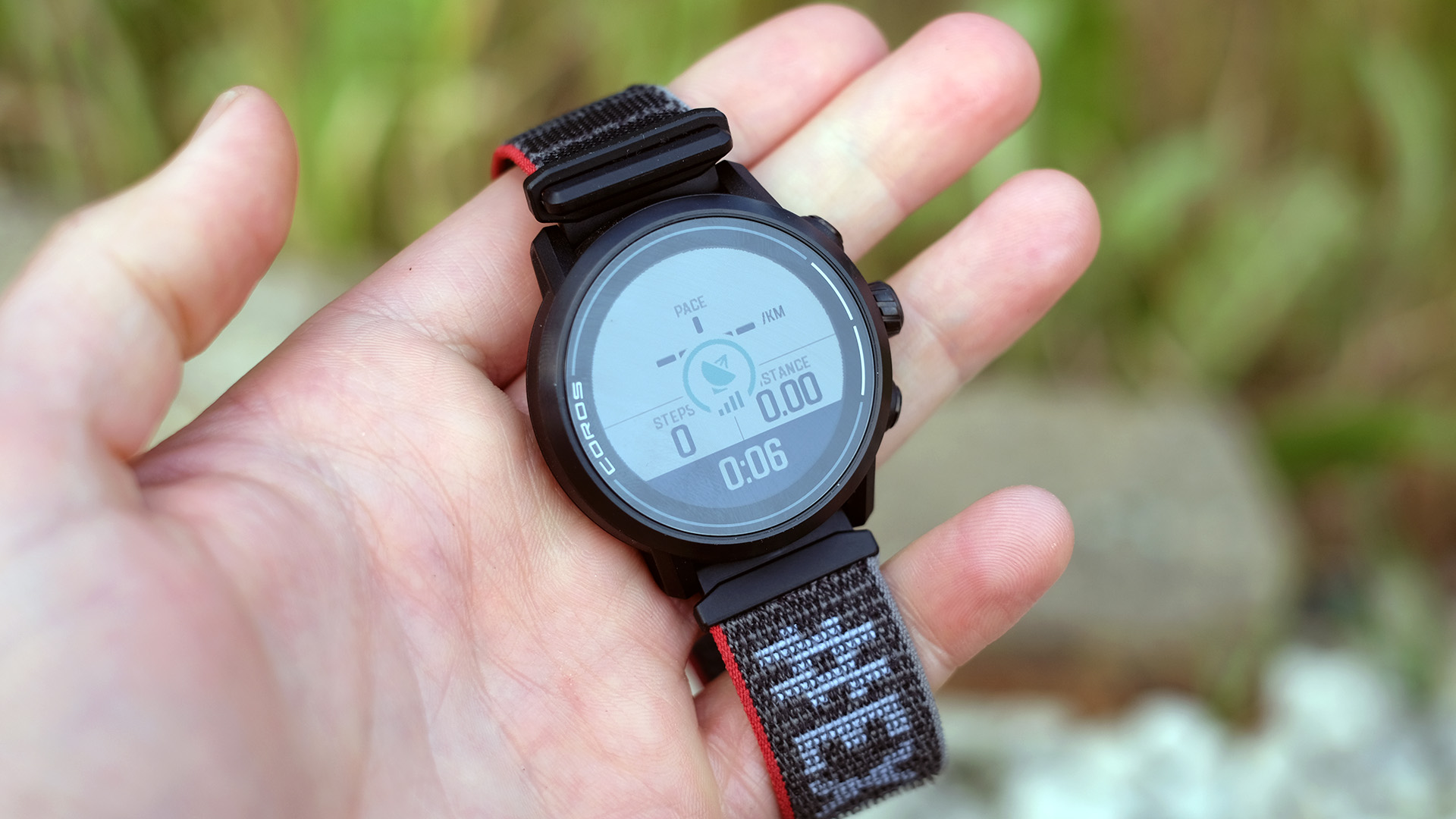
If the Coros Apex 2 isn't for you
If you’re looking at this watch, you’ve probably already discounted an Apple Watch. Our real rivals here are brands like Suunto, Garmin and Polar.
The Suunto Baro 9 is significantly larger, but comes across less advanced in-use as you can’t save maps to the watch itself. Similarly, while the Polar Grit Pro X can tie in with Komoot for turn-by-turn navigation, you’re only going to see a breadcrumb trail line rather than a real map. It does have better water resistance, though, 10ATM.
We think the Garmin Forerunner 955 is the true Apex 2 alternative, though. It has even better mapping features, is generally a bit more fun to use in our experience. However, it is more expensive and the materials used are significantly less tough — more plastic, less-tough glass.
Andrew Williams is a freelance journalist based near London. He has written about tech for over a decade, contributing to sites such as WIRED, TechRadar, TrustedReviews, Wareable, Stuff, T3, Pocket-lint and many others. When he's not covering fitness tech, he writes about mobile phones and computing, as well as cameras.
